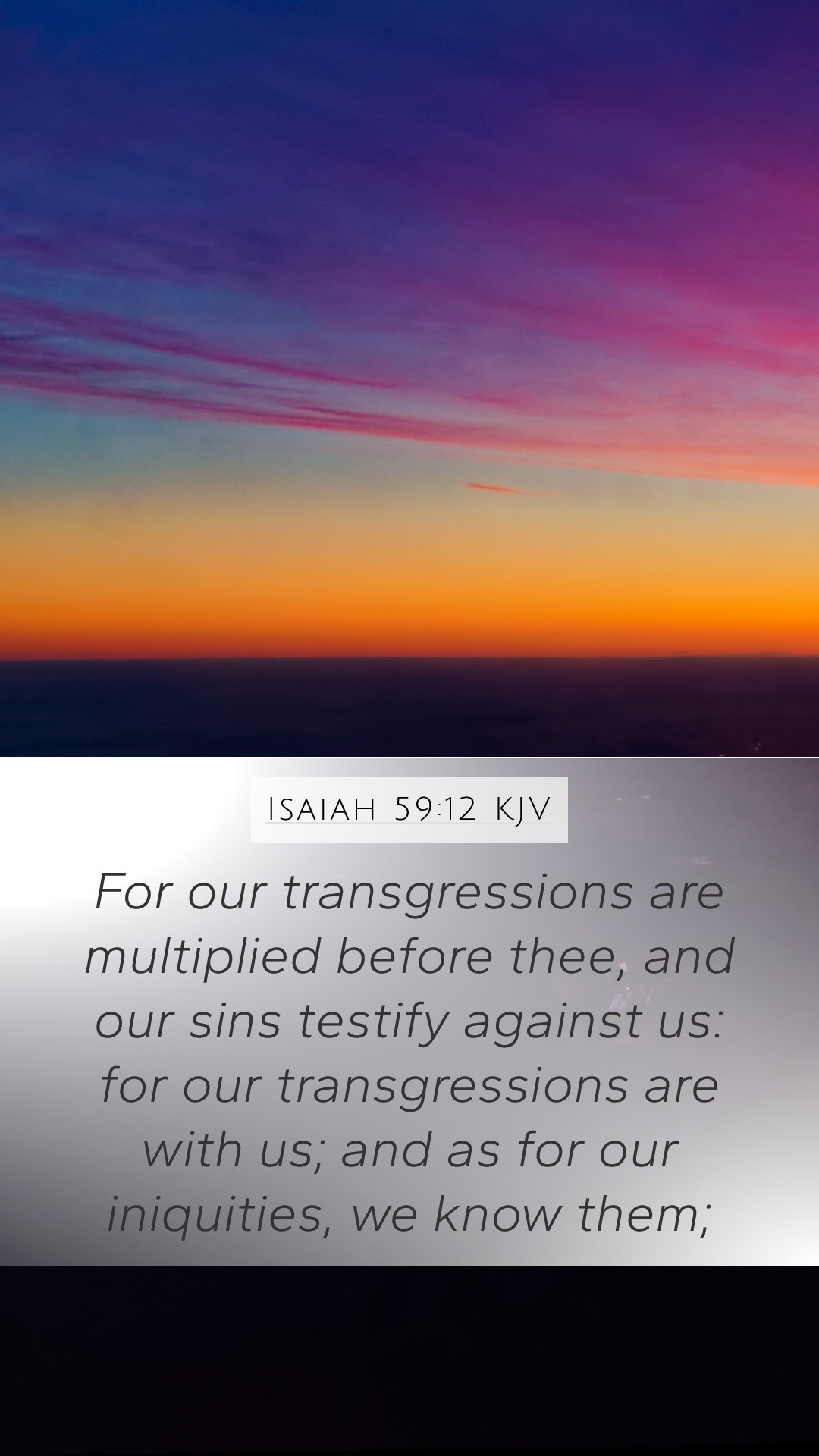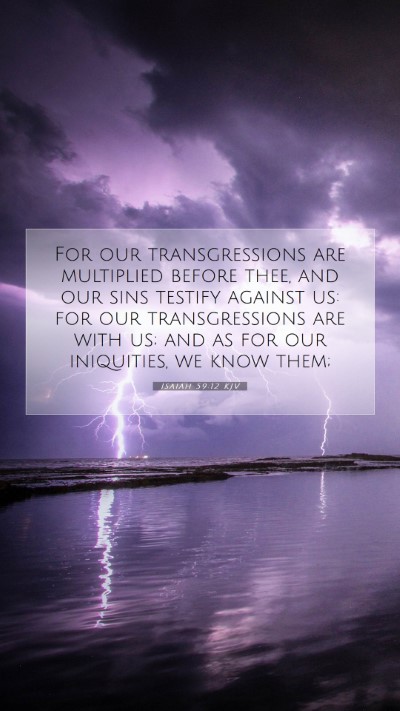Understanding Isaiah 59:12
Isaiah 59:12 states: “For our transgressions are multiplied before thee, and our sins testify against us: for our transgressions are with us; and as for our iniquities, we know them.” This verse serves as a powerful reflection on sin and its impact on the relationship between humanity and God.
Context and Overview
This verse falls within a broader passage that articulates the Lord's displeasure with the people of Israel due to their iniquities. It underscores their collective acknowledgment of sin and the consequences that arise from ignoring God's commands.
Key Themes
- Acknowledge of Sin: The verse highlights the recognition of sin as an essential step in repentance.
- Transgressions Against God: A clear declaration of how moral failings have distanced them from divine grace.
- Divine Justice: The idea that unconfessed and unrepented sins will be met with divine judgment.
Bible Verse Interpretations
Public domain commentaries provide valuable insights into the meaning of this verse:
Matthew Henry's Commentary
Henry emphasizes the notion that the multitude of transgressions serves as a barrier to receiving God’s mercy. He notes that sin, when acknowledged, becomes a testimony against individuals, pointing to the necessity of confession in renewing one’s relationship with God.
Albert Barnes' Notes
Barnes interprets this verse as an admission of guilt from the people. He articulates that their sins have not only increased but have also become pervasive, indicating an overarching state of moral decay. His commentary stresses the importance of awareness of sin for true repentance to occur.
Adam Clarke’s Commentary
Clarke highlights the implications of sin in a communal context. He suggests that the mention of “our transgressions” signifies a collective guilt that demands corporate repentance, further underscoring the Jewish understanding of sin as not only individual but communal.
Scripture Analysis
Isaiah 59:12 invites deeper reflection on the nature of sin and the need for redemption. It serves as a poignant reminder for individuals and communities alike to confront their spiritual shortcomings.
Application to Daily Life
In considering the application of this verse, individuals are encouraged to take stock of their lives and recognize areas of moral failing. Engaging in honest self-reflection can lead to transformative repentance, restoring one’s relationship with God.
Related Bible Cross References
- Romans 3:23: "For all have sinned, and come short of the glory of God."
- 1 John 1:8-9: "If we say that we have no sin, we deceive ourselves, and the truth is not in us."
- Psalms 51:3: "For I acknowledge my transgressions: and my sin is ever before me."
Conclusion
Understanding Isaiah 59:12 through the lens of various commentaries enriches one’s grasp of its profound meaning. It reminds believers of the critical importance of acknowledging their sins and seeking restoration through God’s grace.


